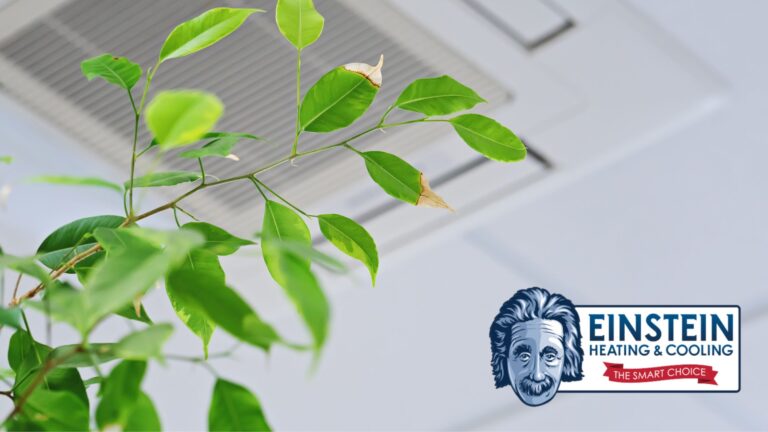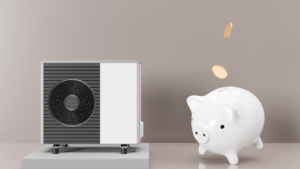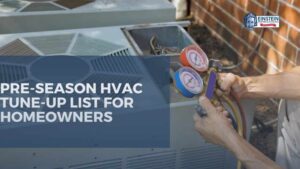Indoor air quality (IAQ) is the quality of the air inside buildings and structures, and it plays a crucial role in maintaining the health and comfort of occupants. The HVAC system, which stands for heating, ventilation, and air conditioning, is responsible for regulating the temperature, humidity, and air quality of indoor spaces. As such, the relationship between HVAC and IAQ is critical in ensuring that the air inside a building is healthy and safe to breathe.
In this article, we will discuss the relationship between HVAC and IAQ and the factors that affect indoor air quality. We will also explore how HVAC systems can improve IAQ and some best practices for maintaining good air quality inside buildings.
Factors Affecting Indoor Air Quality
Indoor air quality can be affected by a range of factors, including outdoor air pollution, building materials, cleaning products, and human activities. Some of the common indoor air pollutants include:
Particulate matter: This includes dust, pollen, and other airborne particles that can cause respiratory problems.
Volatile organic compounds (VOCs): These are gases emitted from materials such as paints, adhesives, and cleaning products that can cause eye, nose, and throat irritation, as well as headaches and dizziness.
Carbon monoxide (CO): This is a colorless and odorless gas that is toxic and can cause headaches, nausea, and even death.
Radon: This is a radioactive gas that is formed from the natural decay of uranium in the soil and rocks. Exposure to radon can cause lung cancer.
Biological pollutants: These include mold, bacteria, and viruses that can cause respiratory and other health problems.
HVAC and Indoor Air Quality
The HVAC system plays a vital role in regulating the temperature, humidity, and air quality of indoor spaces. There are several ways that HVAC systems can affect indoor air quality, including:
Filtration: HVAC systems can filter out particulate matter, such as dust and pollen, from the air. Filters can be rated based on their efficiency in removing particles from the air, with higher-rated filters providing better air filtration.
Ventilation: HVAC systems can bring in fresh air from outside and remove stale air from inside the building. This helps to dilute indoor air pollutants and maintain good air quality.
Humidity control: HVAC systems can regulate the humidity levels inside the building, which can help to prevent the growth of mold and bacteria.
Temperature control: HVAC systems can regulate the temperature inside the building, which can affect indoor air quality. For example, higher temperatures can increase the concentration of indoor air pollutants.
Improving Indoor Air Quality with HVAC Systems
HVAC systems can be designed and operated to improve indoor air quality. Some strategies for improving IAQ with HVAC systems include:
Regular maintenance: Regular maintenance of HVAC systems can help to ensure that they are functioning correctly and efficiently, which can help to maintain good indoor air quality.
Use of high-efficiency filters: High-efficiency filters can remove more airborne particles from the air, which can improve indoor air quality.
Use of ultraviolet (UV) lights: UV lights can kill mold, bacteria, and viruses that may be present in the air or on HVAC system components, which can improve indoor air quality.
Use of energy recovery ventilation (ERV) systems: ERV systems can bring in fresh air from outside and remove stale air from inside the building while also recovering energy from the air that is being removed. This can help to maintain good indoor air quality while also improving energy efficiency.
Best Practices for Maintaining Good Indoor Air Quality
There are several best practices that building owners and occupants can follow to maintain good indoor air quality. Some of these include:
Maintaining good indoor air quality (IAQ) is essential for ensuring the health and comfort of building occupants. Here are some best practices for maintaining good indoor air quality:
Regular cleaning: Regular cleaning of building surfaces, floors, and furnishings can help to remove dust and other particulate matter that can contribute to poor IAQ.
Proper ventilation: Proper ventilation is critical for maintaining good IAQ. Ensure that HVAC systems are functioning correctly and that air filters are replaced regularly.
Use of high-efficiency air filters: High-efficiency air filters can remove more airborne particles from the air, which can improve IAQ.
Proper humidity control: Proper humidity control can prevent the growth of mold and bacteria, which can contribute to poor IAQ.
Regular HVAC maintenance: Regular maintenance of HVAC systems can help to ensure that they are functioning correctly and efficiently, which can help to maintain good IAQ.
Use of green cleaning products: Use of green cleaning products can help to reduce the amount of VOCs and other harmful chemicals in the air, which can improve IAQ.
Proper waste management: Proper waste management practices, such as regular trash removal and recycling, can help to reduce the amount of particulate matter and other pollutants in the air.
Use of indoor plants: Indoor plants can help to remove some airborne pollutants from the air and improve IAQ.
Avoidance of smoking indoors: Smoking indoors can contribute to poor IAQ by releasing harmful chemicals and particulate matter into the air.
Regular testing: Regular testing of IAQ can help to identify problems early and ensure that the building is maintaining good IAQ levels.
In summary, maintaining good indoor air quality is critical for the health and comfort of building occupants. Proper ventilation, use of high-efficiency air filters, proper humidity control, regular HVAC maintenance, and use of green cleaning products are all essential practices for maintaining good IAQ. By following these best practices, building owners and occupants can ensure that the air they breathe is healthy and safe.








